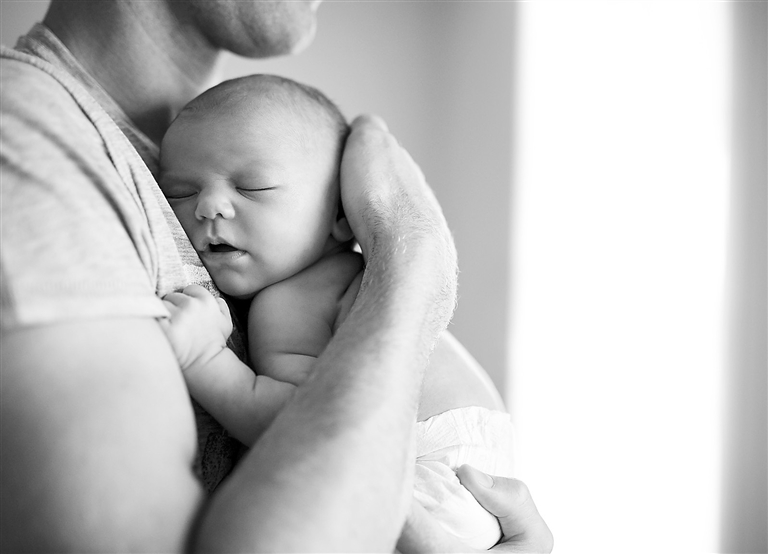
POSTPARTUM depression (PPD) isn’t just something new mothers can get. It can affect new fathers, too, according to a new study published in the American Journal of Men’s Health. A team of Danish investigators led by researcher Sarah Pedersen, of the Department of Public Health, Aarhus University, extensively interviewed eight fathers with PPD and found their primary experiences involved feelings of being overwhelmed and powerless or inadequate, which sometimes turned into anger and frustration. Ultimately, all the men interviewed for the study sought formal help from a health care provider, but six went through several months of depressive symptoms before seeking or getting help. “I think one of the most important take-home messages is that practicing clinicians working with new parents should invite fathers to consultations and engage the fathers as much as possible,” Pedersen said. “I hope parents will support each other and talk about their feelings and how they experience the transition to parenthood — know that it will take time to adjust to the new role,” she said. There’s been too little focus on fathers when it comes to PPD, according to Pedersen. “During the last decade, several studies have examined the prevalence of PPD in men, and there is rising evidence that paternal PPD is associated with increased risk of long-term adverse behavioral and emotional outcomes in children,” she said. Nevertheless, only three studies have been based on interviews with fathers who had personal experience with PPD. “The purpose of our study was, first of all, to explore the lived experience of fathers who had PPD and, secondly, to gain deeper understanding of their help-seeking behavior — barriers to seeking help and facilitators of help-seeking,” Pedersen said. The study was based on “semistructured” interviews with eight Danish fathers (aged 29 to 38) who had had PPD, none of whom had a previous history of depression. All participants had received a formal diagnosis of PPD by a general practitioner or psychologist, and all had sought or received mental health care and considered themselves recovered from depression at the time of the interview. The researchers used a technique called interpretative phenomenological analysis to analyze the interviews. This method “aims to produce in-depth examinations of certain phenomena by examining how individuals make meaning of their own life experiences,” the authors wrote. Of the fathers, five described the period of pregnancy as a “time of happiness, full of positive expectations about fatherhood.” But “the fathers’ great expectations were later replaced by a very different reality of fatherhood,” the authors wrote, noting that the transition to fatherhood was, in the words of one participant, a “radical change that you just can’t imagine.” Most fathers expressed a feeling of being overwhelmed, and three felt unready for the task, which added to their depression. “The participants wanted to be emotionally and physically present in their child’s life, but during the time of their depression, these kind-hearted intentions changed into feelings of guilt and inadequacy, as the participants did not feel they had enough energy and mental strength to become the kind of fathers they wanted to be,” the authors wrote. (SD-Agencies) | 
